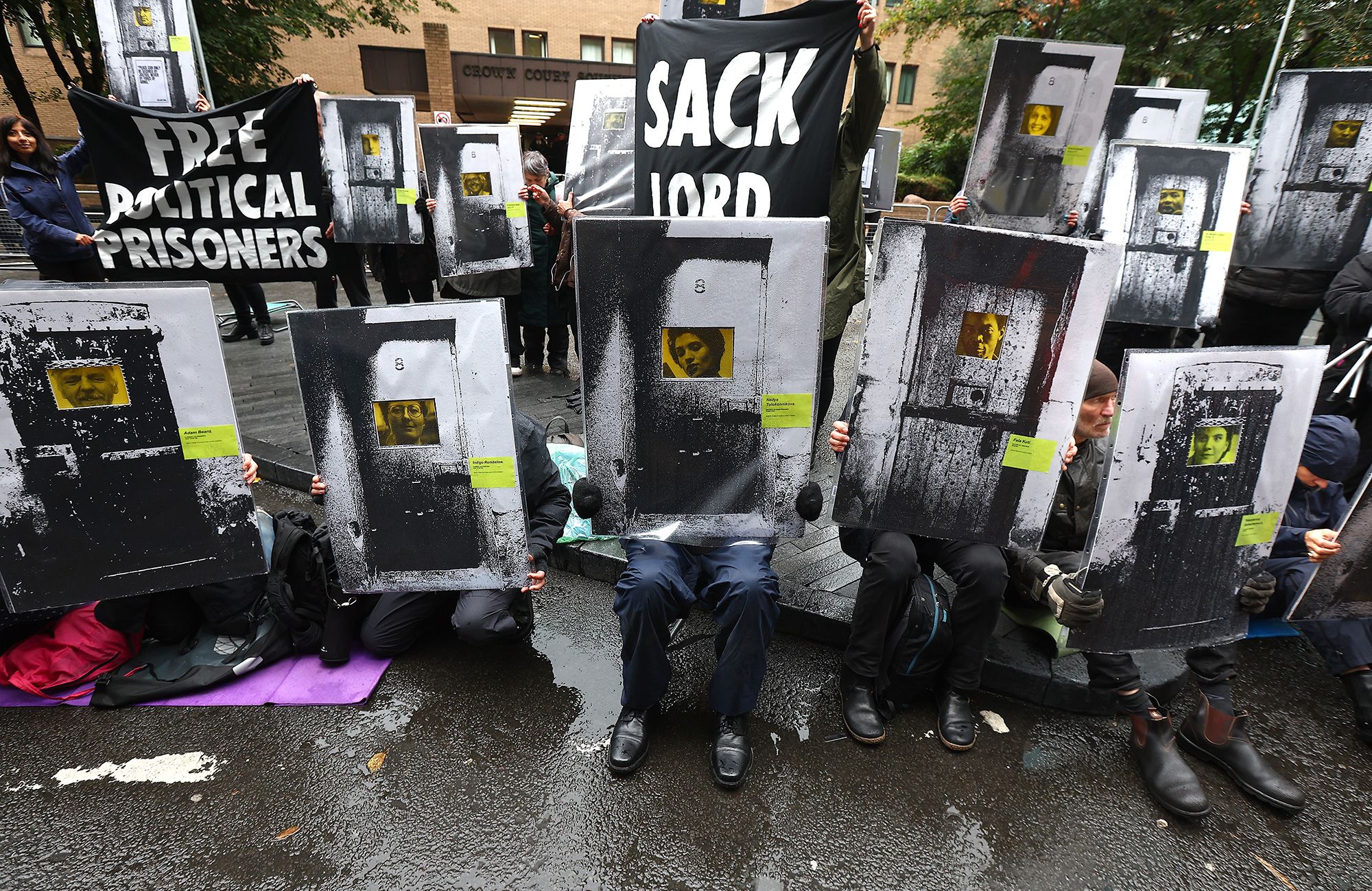Climate Activism and the Price of Protest: A Look at the Sentencing of Just Stop Oil Members
In a striking display of the tensions between climate activism and legal repercussions, two young activists from the group Just Stop Oil were sentenced to prison by a London court for their audacious protest against fossil fuels. Phoebe Plummer, 23, and Anna Holland, 22, were found guilty of criminal damage after throwing soup over Vincent Van Gogh’s iconic painting “Sunflowers” in October 2022. This incident has sparked widespread debate about the effectiveness and ethics of disruptive protest tactics in the fight against climate change.
The Incident: A Bold Statement
The protest, which took place at the National Gallery in London, involved Plummer and Holland pouring two tins of tomato soup over the famous artwork, valued at over $84 million. While the painting itself was protected by glass, the activists caused significant damage to its ornate gold frame, estimated at £10,000 (over $13,000). Following the act, the two glued themselves to the wall beneath the painting, a move that underscored their commitment to drawing attention to the climate crisis.
Judge Christopher Hehir, who presided over the case, expressed grave concern about the potential consequences of their actions. He admonished the activists, stating that their actions could have led to serious damage to the painting, emphasizing that they “couldn’t have cared less” about the artwork’s preservation. He highlighted the cultural significance of “Sunflowers,” referring to it as a “cultural treasure” that deserved protection.
Sentencing and Legal Context
On Friday, Plummer was sentenced to two years in prison, while Holland received a 20-month sentence. These sentences are part of a broader trend in the UK, where climate activists have faced increasingly severe legal consequences for their disruptive protests. Recent legislation has granted police and courts enhanced powers to crack down on protests deemed disruptive, even when peaceful.
The judge’s ruling reflects a growing intolerance for protest tactics that disrupt public life, particularly in the context of climate activism. He noted that Plummer’s involvement in a “slow march” protest earlier in 2023, which caused traffic delays in west London, warranted an additional three-month sentence. This highlights the legal system’s stance on maintaining public order over the activists’ right to protest.
The Response from Just Stop Oil
Despite the harsh sentences, Just Stop Oil remains undeterred. Just hours after the court’s decision, three more activists from the group threw soup over two additional Van Gogh paintings at the National Gallery, reiterating their commitment to raising awareness about fossil fuel consumption. This response underscores a key aspect of the climate movement: the belief that drastic actions are necessary to provoke meaningful dialogue and change.
Plummer, who represented herself in court, articulated a broader perspective on the implications of their sentencing. She stated, “My choice today is to accept whatever sentence I receive with a smile. It is not just myself being sentenced today, or my co-defendants, but the foundations of democracy itself.” This sentiment reflects a growing frustration among activists who feel that their voices are being stifled by legal measures designed to suppress dissent.
Criticism of Government Policies
The UK government has faced significant criticism for its approach to climate protests, particularly from human rights organizations and international observers. Michael Forst, the UN’s special rapporteur on environmental defenders, has condemned the laws as being enforced in “punitive and repressive” ways. Critics argue that these measures undermine the democratic right to protest and silence voices advocating for urgent action on climate change.
The legal repercussions faced by Plummer and Holland are emblematic of a larger struggle between climate activists and governmental authorities. As the climate crisis intensifies, the question arises: how far are activists willing to go to make their voices heard, and at what cost?
Conclusion: The Future of Climate Activism
The sentencing of Phoebe Plummer and Anna Holland serves as a pivotal moment in the ongoing discourse surrounding climate activism. It raises critical questions about the balance between public order and the right to protest, the effectiveness of disruptive tactics, and the role of government in addressing the climate crisis. As activists continue to push boundaries in their fight against fossil fuels, society must grapple with the implications of their actions and the legal frameworks that govern dissent.
In a world increasingly aware of the urgent need for climate action, the dialogue surrounding these protests will undoubtedly continue to evolve. Whether through legal battles or public discourse, the fight for a sustainable future remains at the forefront of global consciousness, challenging us all to consider the lengths we are willing to go to protect our planet.
